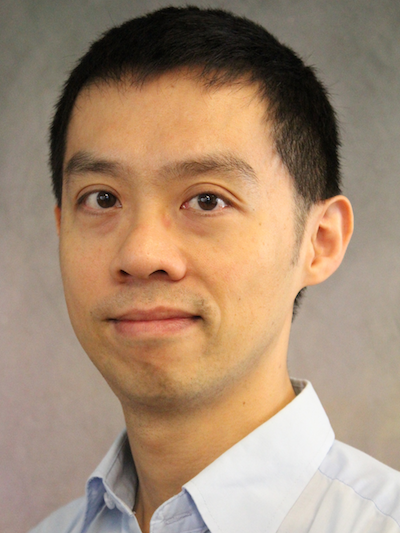Go to
June 21, 2016
Opportunities and Challenges in Global Network Cameras
Tuesday, 21 June 2016 at 11:00 in INF 328
Yung-Hsiang Lu, Purdue University, West Lafayette, Indiana, USA
Abstract:
Millions of network cameras have been deployed. Many of these cameras provide publicly available data, continuously streaming live views of national parks, city halls, streets, highways, and shopping malls. A person may see multiple tourist attractions through these cameras, without leaving home. Researchers may observe the weather in different cities. Using the data, it is possible to observe natural disasters at a safe distance. News reporters may obtain instant views of an unfolding event. A spectator may watch a celebration parade from multiple locations using street cameras. Despite the many promising applications, the opportunities of using global network cameras for creating multimedia content have not been fully exploited. The opportunities also bring forth many challenges. Managing the large amount of data would require fundamentally new thinking. The data from network cameras are unstructured and have few metadata describing the content. Searching the relevant content would be a challenge. Because network cameras continuously produce data, processing must be able to handle the streaming data. This imposes stringent requirements of the performance.
In this presentation, I will share the experience building a software system that aims to explore the opportunities using the data from global network cameras. CAM2 (Continuous Analysis of Many CAMeras, https://cam2.ecn.purdue.edu/) is a cloud-based system for studying the worldwide phenomena using network cameras. CAM2 provides an event-based API (application programming interface) and is open to researchers to analyze the data for their studies. The web interface allows users to select the cameras for analysis. The cloud computing engine can scale in response to the needs of analysis programs.
About the speaker:
 Yung-Hsiang Lu is an associate professor in the School of Electrical and Computer Engineering and (by courtesy) the Department of Computer Science of Purdue University. He is an ACM distinguished scientist and ACM distinguished speaker. He is a member in the organizing committee of the IEEE Rebooting Computing Initiative. He is the lead organizer of the first Low-Power Image Recognition Challenge in 2015, the chair (2014-2016) of the Multimedia Communication Systems Interest Group in IEEE Multimedia Communications Technical Committee. He obtained the Ph.D. from the Department of Electrical Engineering at Stanford University.
Yung-Hsiang Lu is an associate professor in the School of Electrical and Computer Engineering and (by courtesy) the Department of Computer Science of Purdue University. He is an ACM distinguished scientist and ACM distinguished speaker. He is a member in the organizing committee of the IEEE Rebooting Computing Initiative. He is the lead organizer of the first Low-Power Image Recognition Challenge in 2015, the chair (2014-2016) of the Multimedia Communication Systems Interest Group in IEEE Multimedia Communications Technical Committee. He obtained the Ph.D. from the Department of Electrical Engineering at Stanford University.
Secondary navigation
- January 29, 2018
- August 30, 2017
- Past seminars
- 2016 - 2017 Seminars
- 2015 - 2016 Seminars
- 2014 - 2015 Seminars
- 2013 - 2014 Seminars
- 2012 - 2013 Seminars
- 2011 - 2012 Seminars
- 2010 - 2011 Seminars
- 2009 - 2010 Seminars
- 2008 - 2009 Seminars
- 2007 - 2008 Seminars
- 2006 - 2007 Seminars
- August 31, 2007
- June 29, 2007
- June 20, 2007
- June 5, 2007
- May 30, 2007
- May 16, 2007
- May 15, 2007
- April 24, 2007
- March 27, 2007
- March 14, 2007
- February 9, 2007
- February 8, 2007
- January 12, 2007
- December 5, 2006
- November 14, 2006
- October 31, 2006
- October 27, 2006
- October 26, 2006
- October 20, 2006
- September 20, 2006
- September 20, 2006
- September 20, 2006
- September 19, 2006
- 2005 - 2006 Seminars
- August 23, 2006
- August 22, 2006
- June 26, 2006
- June 20, 2006
- June 16, 2006
- June 7, 2006
- June 6, 2006
- May 30, 2006
- May 17, 2006
- May 10, 2006
- April 27, 2006
- April 12, 2006
- March 31, 2006
- March 29, 2006
- March 22, 2006
- March 15, 2006
- February 27, 2006
- February 8, 2006
- January 25, 2006
- January 19, 2006
- January 18, 2006
- January 17, 2006
- January 11, 2006
- November 30, 2005
- November 23, 2005
- November 2, 2005
- October 26, 2005
- October 25, 2005
- October 5, 2005
- September 28, 2005
- 2005 Seminars

